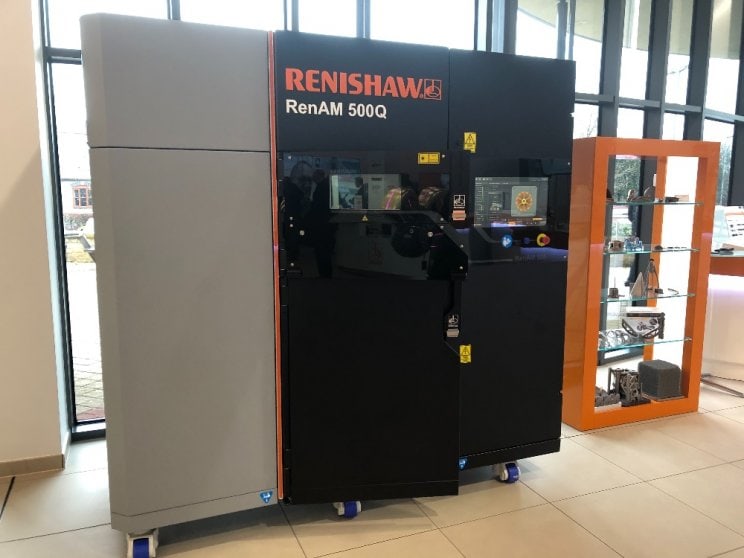Innovators and tech leaders gathered at Renishaw’s HQ in Gloucestershire today to share ideas and intelligence on the additive manufacturing (AM) revolution.
The invitees, drawn together by Additive Manufacturing UK, shared one goal: to drive the development and adoption of AM technology. So what exactly is AM?
You might think AM – essentially the process of 3D printing in manufacturing – is tomorrow’s story, but think again: from Adidas trainers to space exploration, its impetus already reaches out to touch our daily lives. From medicine, to aerospace, via sport and the arts, it is swiftly becoming a key aspect of the manufacture of anything and everything.
AM is even on course for an Oscar – that cheeky Pinocchio puppet in Guillermo del Toro’s new take of the classic children’s tale is all down to this tech. In Arizona, you can move into a printed house; if you’re seriously injured in a car crash, AM can replicate facsimile bones to repair your body… in truth, AM isn’t a mere industry story, it’s happening to all of us and will touch every aspect of our lives.
And here in Wotton-under-Edge, Renishaw plc holds centre stage in Britain’s bid to be a key player. Hosting today’s gathering for AMUK, Stewart Lane, head of business development for Renishaw’s EMEA arm, said that given 12 years of investment and hard work in the field, Gloucestershire’s high-tech giant is sitting in a prime position for the industry’s global application.
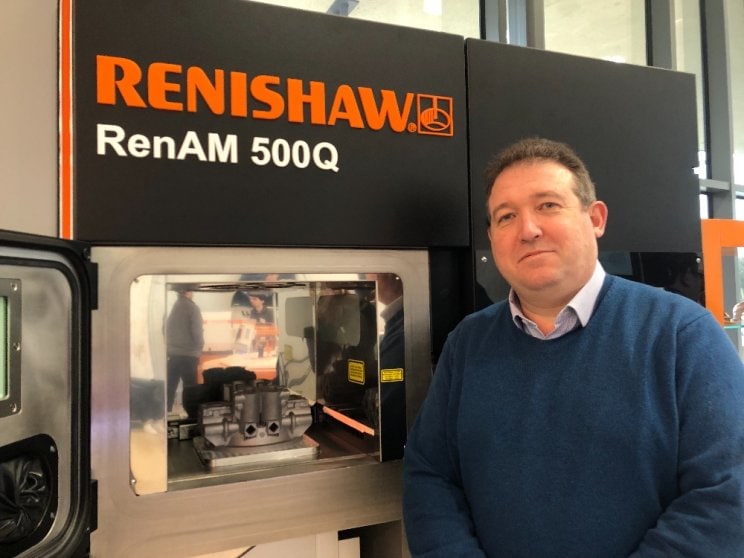
Stewart said: “AM is an important sector for us and we are experiencing significant growth in uptake” He doesn’t divulge the capital Renishaw has expended to get to where the company is in this field, but given that AM often woos potential clients by promising a manufacturing route that can help render traditional and comparatively wasteful tooling redundant, is there not a danger that Renishaw’s leading edge in a global AM revolution might cannibalise its existing business?
“From the outside, that’s an observation that we have come up against, but the reality is that these are complementary technologies,” he explained. Because AM requires finish in the process, tooling, he said, and all the attendant metrology Renishaw offers, remains central to manufacturing.
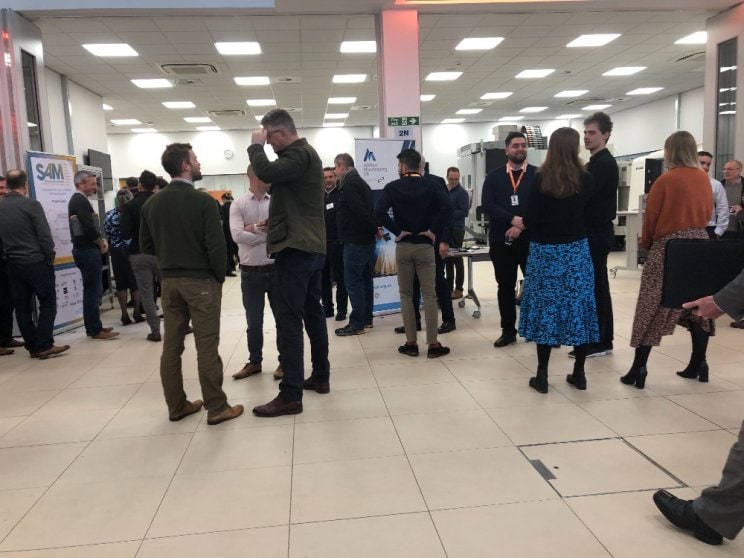
In fact, the UK’s advance as a global key player is largely attributable to Renishaw’s ongoing R&D for AM, the product of which continues to break the company’s profile out of industry coverage and into mainstream news.
Witness the latest headline since February: Renishaw’s AM know-how in metal 3D printing technology is building the bicycle bones for Team Britain’s cycling hopes in the 2024 Paris Olympics.
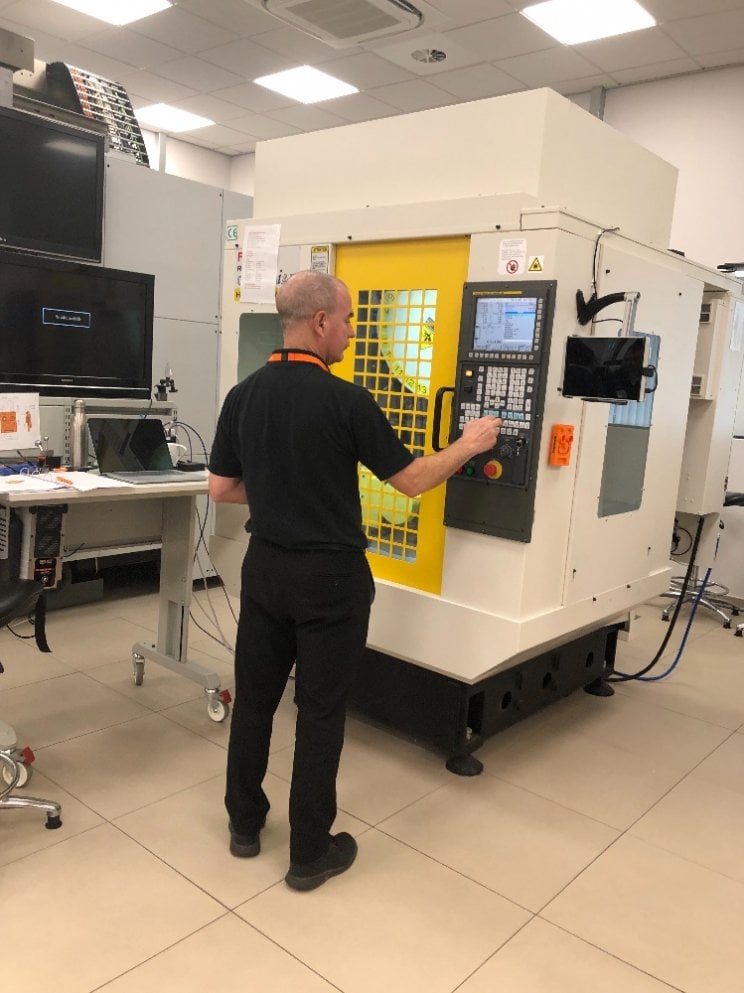 Snippets of fascinating industry insight jumped from the day’s agenda. But the most important take-aways?
Snippets of fascinating industry insight jumped from the day’s agenda. But the most important take-aways?
Despite anticipated recession, AM is an obvious area of growth that can provide a crucial pathway for the recovery of British industry; its bespoke nature means it can fit seamlessly into any manufacturer’s goals for sustainability and waste reduction (aka profit destruction); it is proven to sidestep supply chain difficulties; it can offer alternative materials solutions, often spelling huge budget savings, for engineering solutions that, a generation ago, we believed utterly impossible.
Ultimately, additive manufacturing is here to stay, and with key players like Renishaw championing its future, Gloucestershire now stands as a 3D beacon on the AM map.
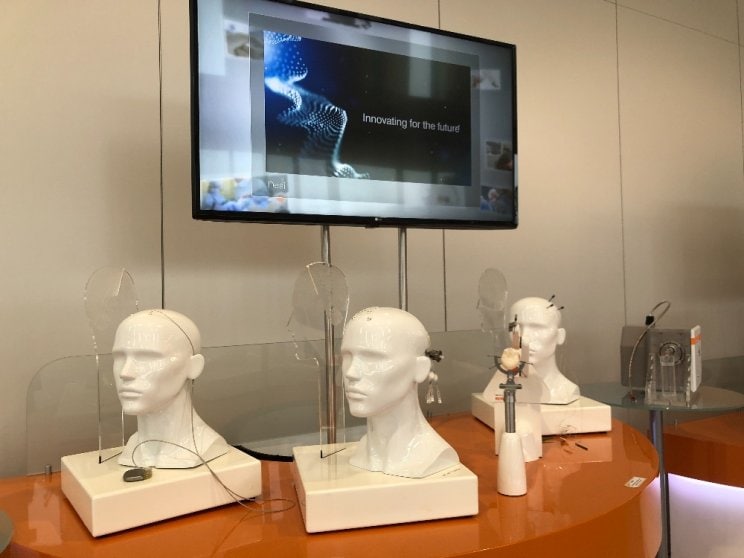
Subscribe to AM Chronicle Newsletter to stay connected: https://bit.ly/3fBZ1mP
Follow us on LinkedIn: https://bit.ly/3IjhrFq
Visit for more interesting content on additive manufacturing: https://amchronicle.com

